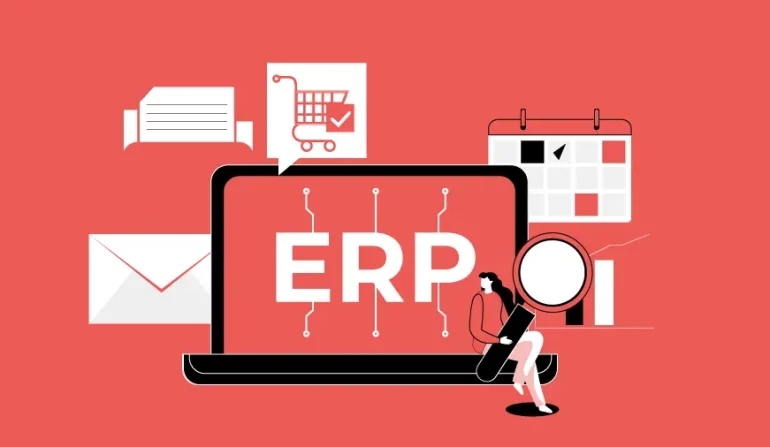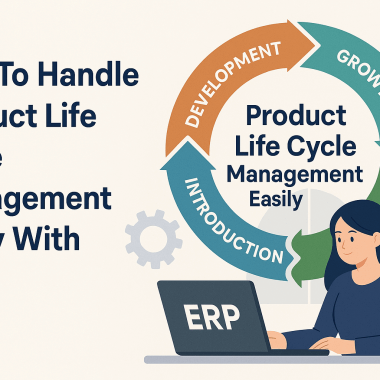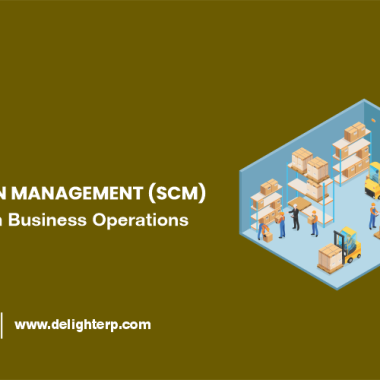Introduction
The furniture hardware industry in India is growing at a rapid pace, and companies are looking for ways to streamline their operations, reduce costs, and improve efficiency. One of the most effective solutions for achieving these goals is to implement an Enterprise Resource Planning (ERP) system.
ERP, or Enterprise Resource Planning, is a comprehensive software solution that has been designed to help organizations streamline their operations and improve overall efficiency. It is especially useful for businesses operating in complex and fast-paced environments, such as the furniture hardware industry in India. ERP can provide a range of benefits for companies in this sector, including improved inventory management, better control over production processes, and enhanced customer service. In this article, we will explore the steps required to implement ERP in the furniture hardware industries in India and examine the key benefits that can be achieved through its use.

Top furniture hardware Manufacturing Industries in India:
-
Hettich India Pvt. Ltd.
-
Godrej & Boyce Manufacturing Co. Ltd.
-
Ebco Pvt. Ltd.
-
Sleek International Pvt. Ltd.
-
Ozone Overseas Pvt. Ltd.
-
Century Plyboards (India) Ltd.
-
Rajratan Global Wire Ltd.
-
Khakhi Hardware
-
Usha Manufactures
-
Kaizetech
Steps to Implement ERP in Furniture Hardware Manufacturing Industries:
Implementing ERP can be a complex process, requiring careful planning and execution. Here are some of the key steps involved in implementing ERP in furniture hardware industries in India:
Step 1: Define Your Goals and Objectives:
Before implementing an ERP system, you need to define your goals and objectives. Determine what you want to achieve by implementing an ERP system. For instance, you may want to streamline your supply chain, improve inventory management, or increase customer satisfaction. Defining your goals and objectives will help you select the right ERP system that meets your business needs.
Step 2: Choose the Right ERP System:
Choosing the right ERP system is crucial for the success of your implementation project. Consider the features and functionalities of different ERP systems and how they can meet your business needs. You should also consider the scalability, flexibility, and compatibility of the ERP system with your existing systems and processes.
Step 3: Create an Implementation Plan:
Creating an implementation plan is essential to ensure a smooth transition to the new ERP system. The plan should include a detailed timeline, milestones, and responsibilities for each stage of the implementation process. The plan should also include a contingency plan in case of unexpected issues.
Step 4: Prepare Your Data:
Preparing your data is a critical step in the ERP implementation process. Ensure that your data is clean, accurate, and up-to-date. You should also consider data migration from your existing systems to the new ERP system.
Step 5: Train Your Employees:
Training your employees is crucial for the successful adoption of the new ERP system. Your employees should be trained on how to use the new system, its features and functionalities, and how it can benefit your business. Consider providing ongoing training and support to ensure that your employees are comfortable with the new system.
Step 6: Test and Go Live:
Before going live, you should test the ERP system to ensure that it meets your business needs and works as expected. Consider conducting a pilot project with a small team before implementing the system company-wide. Once you are satisfied with the test results, you can go live and start using the new ERP system.
Step 7: Monitor and Evaluate:
After the implementation, you should monitor and evaluate the performance of the new ERP system. Identify any issues or areas for improvement and take corrective actions where necessary. Consider conducting regular audits to ensure that the system is working as expected.
Also check this: “Types Of Manufacturing Industries Surrounding Rajkot / Saurashtra Region.”
The Benefits of ERP for Furniture Hardware Industries in India
The furniture hardware industry in India is a fast-growing sector, with a diverse range of companies operating within it. These businesses are under constant pressure to deliver high-quality products at competitive prices, while also managing complex supply chains and logistics operations. ERP can help these organizations to optimize their processes and overcome some of the challenges they face.
Here are some of the key benefits of ERP for furniture hardware industries in India:
1. Improved Inventory Management:
ERP can help companies to optimize their inventory management processes, by providing real-time visibility into stock levels and helping to ensure that the right products are available at the right time. This can help to reduce wastage, improve production efficiency, and ultimately increase profitability.
2. Enhanced Production Control:
With ERP, companies can track every stage of the production process, from raw materials to finished products. This enables them to identify potential bottlenecks and make necessary adjustments to ensure that production runs smoothly. ERP can also help to improve quality control, by providing real-time data on production performance and identifying areas for improvement.
3. Better Customer Service:
ERP can help companies to provide a higher level of customer service, by enabling them to respond more quickly to customer queries and concerns. By having access to real-time data on inventory levels, production schedules, and delivery times, companies can provide customers with accurate and up-to-date information, which can help to build trust and loyalty.
4. Improved Financial Management:
With ERP, companies can streamline their financial management processes, by automating tasks such as invoicing, accounts payable, and accounts receivable. This can help to reduce the risk of errors and improve the accuracy of financial reporting, which can be especially important for businesses operating in a highly regulated industry such as furniture hardware.
5. Improved Productivity:
An ERP system helps to automate processes and eliminate manual tasks, allowing employees to focus on more important tasks. This improves productivity, reduces errors, and increases efficiency.
Conclusion
In conclusion, implementing an ERP system in the furniture hardware industry in India can be a challenging but rewarding process. By evaluating your current processes, defining your requirements, choosing the right ERP system, preparing your data, training your staff, and monitoring and evaluating the system’s performance, you can successfully implement an ERP system that will improve your business operations and help you stay competitive in the industry.
Delight ERP is one of the best ERP software company in Rajkot, Gujarat which provides the best features of ERP software with the latest technology.
Our best ERP system is a cost-effective solution to help you to establish a fully integrated & smart business. Our highly advanced cloud ERP software contains various modules that focus on essential business areas.
Contact us now for enquires.





